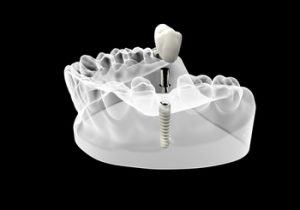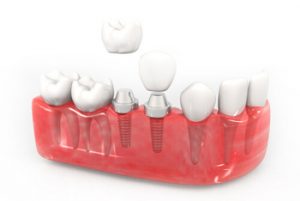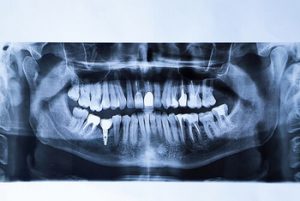Dental health plays a major role in our overall well-being. The rise in the fame of dental implants across the globe, and especially in Australia, highlights the significance people place on maintaining their oral health. The single tooth implant is especially sought after among the myriad of dental solutions. Let’s delve deep into the specifics of single tooth implant cost Australia wants to know.
The Anatomy of a Single Tooth Implant
The dental implant stands out as a remarkable blend of science, engineering, and artistry in the vast landscape of dental solutions. A single tooth implant, specifically, is designed to seamlessly integrate into the mouth, replicating the form and function of natural teeth. Here’s a more detailed look into its anatomy:
The Crown:
Material Choices: Typically crafted from materials like porcelain or Zirconium, the crown is the tooth’s visible part. These materials are chosen due to their striking resemblance to the lustre and translucency of natural teeth. Porcelain, for instance, can be shaped and shaded to match the surrounding teeth, ensuring that the implant is virtually similar to your natural teeth.
Durability and Care: While the crown mirrors the aesthetics of natural teeth, it also possesses commendable durability. A crown can last for many years with proper upkeep, which mirrors the oral hygiene practices for natural teeth. Regular check-ups can ensure it remains secure and free of any wear.
The Abutment:
 The Connector: This is the unsung hero of the dental implant. Acting as a bridge between the crown and the titanium screw, the abutment ensures that the crown remains stable and secure. It’s designed to handle the daily forces of chewing and speaking without shifting or causing discomfort.
The Connector: This is the unsung hero of the dental implant. Acting as a bridge between the crown and the titanium screw, the abutment ensures that the crown remains stable and secure. It’s designed to handle the daily forces of chewing and speaking without shifting or causing discomfort.
Material Considerations: Abutments can be made from various materials, including titanium, gold, or zirconia. The choice of material often depends on the patient’s specific needs, the location of the missing tooth, and aesthetic considerations. For instance, a tooth-coloured zirconia abutment might be preferred for a missing tooth in the front for its natural appearance.
The Titanium Screw:
Bio-compatibility: One of the reasons titanium is used for the screw is because of its bio-compatible properties. When inserted into the jaw bone, there’s minimal risk of the body rejecting it. Over time, osseointegration occurs, where the bone cells grow around the implant, anchoring it securely.
Strength and Resilience: Titanium, known for its robustness and longevity, can handle the daily pressures of chewing and speaking. This ensures that once the dental implant procedure is complete, patients can return to their usual diet and speech patterns without noticeable differences.
Positioning: Whether it’s for the upper or lower jaw, precision is vital. The depth and angle at which the screw is inserted play a crucial role in the success of the dental implant. This is where the dentist’s expertise comes into play, ensuring that the screw is positioned optimally for functionality and aesthetics.
Factors Influencing the Cost
Dental implants, particularly the single dental implant, are undeniably one of the most effective solutions to replace missing teeth. However, when it comes to understanding the dental implants cost, there’s more than meets the eye. Multiple elements combine to influence the price point, making each implant procedure unique to the individual. Here’s an in-depth look at the various factors that can impact the implant cost in Australia:
Materials Used:
Crown Materials: Dental crowns can be made from different materials, with porcelain and Zirconium being the most popular. Porcelain, known for its aesthetic appeal, can vary in cost based on the quality and specific type used. Conversely, Zirconium often comes with a higher price tag due to its durability and natural appearance.
Abutment and Screw Materials: The materials used for the abutment and screw can also influence the dental implant cost. Titanium is a standard choice due to its biocompatibility and strength. However, alternatives like zirconia may be used for specific aesthetic or allergy-related considerations, which could alter the cost.
Dentist’s Experience and Reputation:
Expertise Matters: Dental implant procedures require a combination of surgical precision and aesthetic artistry. Dentists with more experience and a proven track record in successful implant procedures may charge a premium for their services. Remember, with experience often comes reliability and a reduced risk of complications.
Location of the Clinic: The region or city where you get the implant can also influence the cost of dental implants. For example, clinics in urban centres like Sydney or Melbourne might have higher overheads than those in rural areas, reflected in their prices.
Additional Procedures Required:
Bone Grafting: Not every patient has the necessary bone density or volume to support an implant. In such cases, bone grafting may be needed to provide a robust foundation for the implant. This procedure, which involves adding bone material to the jaw, adds to the overall dental implant cost.
Sinus Lifts, Extractions, and More: Depending on the location of the missing tooth, especially if it’s in the upper jaw near the sinuses, a sinus lift might be necessary. Additionally, if a damaged tooth needs extraction before the implant, it’s another factor that can elevate the implants cost in Australia.
Laboratory and Prosthetics Costs:
Customisation: Every dental implant is tailored to the individual, and this customisation can affect the cost. The production of a crown that matches the colour, shape, and size of the patient’s natural teeth can vary in complexity and price.
Technological Advancements: Labs employing the latest technology to design and create the implants might produce superior quality prosthetics but also come with a higher price tag.
Aftercare and Potential Follow-ups:
Maintenance: Just like natural teeth, tooth implants require regular check-ups. Some clinics offer packages that include these follow-up visits in the initial cost, while others charge separately.
Warranties or Guarantees: Some dental professionals offer warranties on their work, which can influence the upfront cost. While this might seem like an added expense initially, it can provide peace of mind knowing that any complications or necessary adjustments within the warranty period won’t incur extra charges.
In summation, while the average cost of dental implants can provide a ballpark figure, the individual’s unique circumstances, choices, and requirements significantly determine the final single dental implant cost in Australia. It’s always wise to consult with multiple professionals, understand the breakdown of costs, and make an informed decision based on budget and quality considerations.
The Actual Costs: Breaking It Down
Navigating the intricate world of dental implants in Australia can be daunting, especially regarding costs. A clear breakdown can help demystify the process and give potential patients an idea of what they can expect financially. Let’s dissect the single tooth implant cost in Australia:
Consultation:
- Initial Examination: From AUD 150
- X-rays or 3D Imaging: From AUD 100
Before any procedure, a thorough examination and imaging are required to determine the patient’s suitability for dental implants and any specific needs.
Materials:
Titanium Implant (the screw): From AUD 1,500
The primary cost driver here is the quality and brand of the implant itself.
Abutment: From AUD $500
This connects the implant to the crown and can differ in price based on material and complexity.
Crown: From AUD 1,200
The price depends on the choice between porcelain, Zirconium, or other materials and the craftsmanship involved.
Surgery Costs:
Implant Placement: From AUD $2,500
This covers the dentist’s fee for the surgical procedure, which can vary based on their experience, expertise, and clinic location.
Bone Grafting (if required): From AUD 400
The variance here depends on the source of the grafting material and the extent of grafting needed.
Sinus Lift (if applicable): From AUD 1,500
This procedure is specific to upper jaw implants near the sinus cavity.
Aftercare and Follow-ups:
Post-Operative Check-ups: From AUD 100 per visit
These are essential to ensure the implant integrates properly and that there are no post-surgical complications.
Maintenance and Cleaning: From AUD 150 annually
Regular maintenance ensures the longevity and health of the implant.
Additional Costs:
Tooth Extraction (if needed): From AUD 150
If the damaged or decayed tooth is still in place, it must be extracted before implant placement.
Sedation or General Anaesthesia: From AUD 500
Depending on the patient’s comfort and the complexity of the procedure, different sedation methods may be used for dental implants. Painful procedures like this may require anaesthesia.
Total Average Cost for a Single Dental Implant in Australia:
 Considering all the elements, the total cost for a single tooth implant in Australia typically ranges from AUD 5,000. It’s important to remember that while this might seem like a significant outlay, dental implants offer a long-term solution that, with proper care, can last a lifetime, making it a worthwhile investment in oral health.
Considering all the elements, the total cost for a single tooth implant in Australia typically ranges from AUD 5,000. It’s important to remember that while this might seem like a significant outlay, dental implants offer a long-term solution that, with proper care, can last a lifetime, making it a worthwhile investment in oral health.
Ways to Manage and Reduce Costs
Dental implants are often considered the gold standard for tooth replacement due to their durability, appearance, and functionality. However, the associated costs can sometimes deter potential patients. Multiple avenues exist to manage and potentially reduce these expenses without compromising quality. Here’s a guide to ease the financial burden of securing a dental implant in Australia:
Private Health Insurance:
- Coverage Levels: Many private dental insurance policies cover dental procedures, including implants. It’s essential to check the specifics of your plan and understand the level of rebate you’re entitled to. Some policies may cover parts of the procedure, such as the crown or the surgery, while others may provide a set rebate amount.
- Waiting Periods: If considering a new policy or upgrading your current one, be aware that waiting periods may apply for major dental procedures, including implants. Planning can be beneficial.
Payment Plans:
- Dental Financing: Some dental clinics offer financing options that allow patients to pay off their treatment over time. This can be particularly useful for spreading the cost and managing the financial impact. Always ensure you understand any interest rates or fees associated with such plans.
- Lay-by Arrangements: Some dental practices offer lay-by options, where you can pay for the procedure in instalments before the treatment begins.
Bulk Billing for Consultations:
- While the actual implant procedure might not be eligible, some initial consultations or follow-up visits might be bulk billed if they fall under general dental examinations. This can reduce out-of-pocket expenses for preliminary and post-care visits.
Government Schemes:
- Medicare: While Medicare typically doesn’t cover dental procedures, specific circumstances or schemes might offer some assistance. It’s worth checking your eligibility and understanding any potential avenues for support.
- State-based Schemes: Some states or territories have unique programs or subsidies for dental care. Exploring local government websites or consulting with community health centres to learn more is advisable.
Negotiate and Shop Around:
 Multiple Quotes: Before committing, getting quotes from several dental professionals is worthwhile. This provides a clearer idea of the average dental implant costs and gives room for negotiation.
Multiple Quotes: Before committing, getting quotes from several dental professionals is worthwhile. This provides a clearer idea of the average dental implant costs and gives room for negotiation.- Package Deals: Some clinics might offer package deals that combine various parts of the implant process, leading to overall cost savings. Ensure you’re clear on what’s included in such packages to avoid hidden costs.
Preventative Care:
- Oral Health Maintenance: Investing in regular dental check-ups and maintaining good oral health can reduce the risk of needing additional treatments alongside your implant, like bone grafts or treatments for gum disease.
Conclusion
Dental implants, especially the single tooth implant, represent a fusion of science, artistry, and dental excellence. They offer a solution that looks and feels natural and promotes oral health and confidence in one’s smile. Understanding the cost structure and how to manage and reduce these costs makes the journey towards a radiant smile even smoother.
For those considering transformative dental procedures like dentures and bridges, it’s essential to be equipped with accurate information and trust in the expertise of seasoned dental professionals. At Beyond Infinity Dental, we pride ourselves on our commitment to providing top-notch dental care and guiding our patients every step of the way.
Ready to take the next step towards restoring your beautiful smile? Don’t let cost concerns hold you back. Reach out to us at (02) 8806 3799. Our dedicated team is here to answer any questions, provide detailed consultations, and assist you in making the best decision for your oral health and well-being. Your radiant, confident smile is just a phone call away.
References:
https://www.medicalnewstoday.com/articles/327515
perio.org/for-patients/periodontal-treatments-and-procedures/dental-implant-procedures/









